Nylon fibers – The Challenge of PMMA Recycling: A Shift Towards Chemical Solutions 13-04-2024
Nylon fibers
INVISTA, a key player in the nylon 6,6 and polypropylene sectors, has announced plans to explore strategic options for its nylon fibers division
This encompasses INVISTA’s fiber-centric portfolio, including airbag and industrial fibers, CORDURA® businesses, and five global manufacturing sites in Seaford, Delaware; Martinsville, Virginia; Kingston, Ontario, Canada; Gloucester, UK; and Qingpu, China.
Francis Murphy, President and CEO of INVISTA, stated, “As part of our Principle Based Management™ approach, we regularly evaluate asset value to ensure optimal ownership for growth. While nylon fibers are valuable, we believe other companies may unlock greater potential. However, if not, we’ll maintain operations.” Nylon fibers
Regardless of any potential divestment, INVISTA commits to serving its global nylon and propylene customers with intermediates, polymers, and specialty chemicals. Proceeding with the exploration would streamline operations, reinforcing focus on core upstream businesses.
The nylon fiber division forms a significant part of INVISTA’s operations, and specifics of any potential deal remain confidential. Barclays has been enlisted as Exclusive Financial Advisor for this process. Nylon fibers
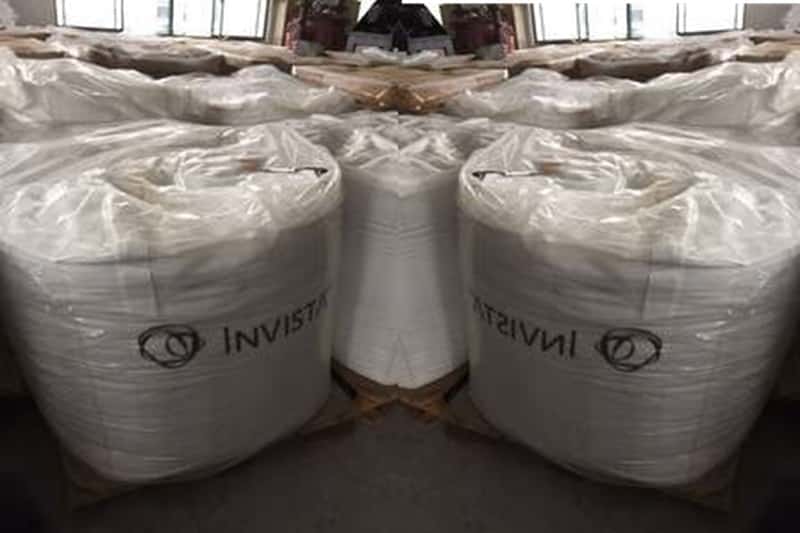
The Challenge of PMMA Recycling: A Shift Towards Chemical Solutions
In the realm of plastics recycling, Poly(methyl methacrylate) (PMMA), commonly known as acrylic or plexiglass, presents a unique challenge. PMMA is widely used for its clarity, strength, and resistance to UV light and weathering, making it a popular material in various industries, from construction to advertising. However, its recycling process is not as straightforward as other plastics.
Mechanical Recycling Limitations
Mechanical recycling, the process of grinding, melting, and remolding plastic waste, is limited when it comes to PMMA. Nylon fibers
This is due to PMMA’s properties, which can degrade when exposed to high temperatures during the recycling process. Additionally, PMMA waste streams often contain additives, colors, and other types of plastics, which can contaminate the recycled product. As a result, only PMMA waste that is clean, clear, and free from contaminants is suitable for mechanical recycling. This represents a small fraction of PMMA waste, leaving the majority either landfilled or incinerated.
Landfill and Incineration Issues
Landfilling PMMA waste is not a sustainable solution. It consumes valuable land resources and can lead to environmental contamination. Incineration, while recovering some energy, releases carbon dioxide and potentially harmful compounds into the atmosphere, contributing to air pollution and climate change. Nylon fibers
Chemical Recycling: A Promising Alternative
Faced with these challenges, the plastic industry is increasingly turning to chemical recycling. This process involves breaking down PMMA waste into its molecular components using chemicals or heat. The resulting monomers can then be purified and repolymerized into new PMMA, effectively closing the loop on the plastic lifecycle.
Advantages of Chemical Recycling
Chemical recycling offers several advantages over mechanical methods. It can handle a broader range of PMMA waste, including contaminated or colored material. It also has the potential to produce PMMA with properties equivalent to virgin material, which is crucial for high-value applications.
Furthermore, chemical recycling reduces the reliance on fossil fuels for new PMMA production, aligning with the principles of a circular economy. Nylon fibers
Challenges and Future Outlook
Despite its benefits, chemical recycling is not without challenges. It requires significant energy input and the use of potentially hazardous chemicals. The infrastructure for chemical recycling is still in development, and the process must be optimized to be cost-effective and environmentally friendly.
As the industry progresses, advancements in catalysts and process design are making chemical recycling more viable. Companies are investing in research and pilot projects to scale up this technology.
With continued innovation and support from policies that encourage recycling and sustainability, chemical recycling could play a pivotal role in managing PMMA waste and reducing the environmental impact of plastics. Nylon fibers
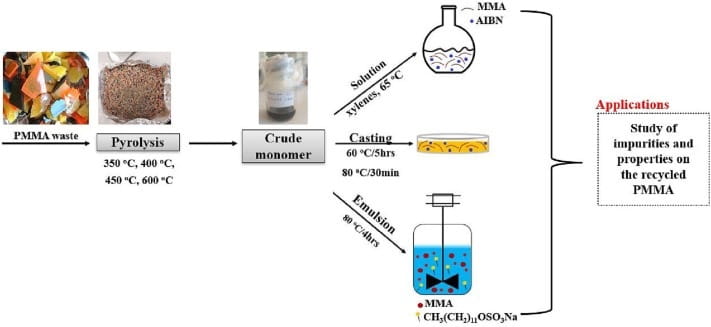
PE prices decreased at domestic trades in Uzbekistan
In the first quarter of 2024, Uzbekistan’s domestic polyethylene (PE) market saw a slight 1% decrease in sales volume year-on-year, with approximately 39,600 tonnes traded through the Uzbek Republican Commodity and Raw Materials Exchange (UZEX). The primary sellers were the Shurtan Gas-Chemical Complex and the UZ-KOR GAS CHEMICAL JV. Film and injection molded PE types dominated the market, holding 35% and 22% shares, respectively, followed by blown PE brands at 17% and pipe PE at 16%.
Price trends for all PE types on the stock exchange from January to March 2024 indicated a general decline. Nylon fibers
January prices started at 16.9 million soums per ton, which then fell to 16.5 million in February, and further dipped to 16 million soums per ton in March.
Geographically, Tashkent and its surrounding region accounted for nearly half of the PE purchases, with a 49% share. Notably, the Fergana region’s share rose from 11% to 18% compared to the previous year, while the Samarkand region also saw an increase from 12% to 15%. Additionally, the Namangan region contributed to 6% of the total sales. These figures reflect a shifting landscape in regional demand within the country’s PE market. Nylon fibers
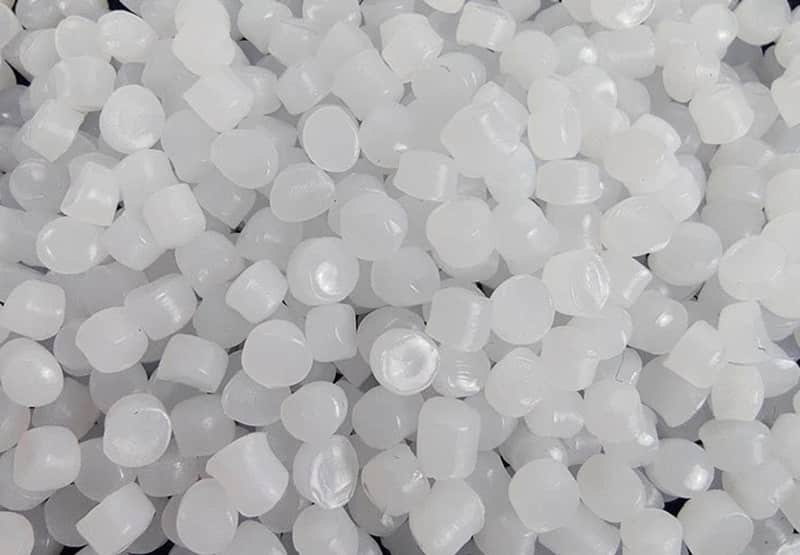
Toray Industries has indeed made a significant advancement by developing a biodegradable spherical polyamide 4 fine particle
This innovation is particularly important as it addresses the environmental concerns associated with microplastics in the oceans. The company’s efforts to replace conventional non-biodegradable particles used in cosmetics with these new biodegradable particles align with global regulatory moves to limit and eventually ban microplastics.
The development of these particles also showcases Toray’s commitment to overcoming technical challenges, such as finding suitable solvents for polyamide 4 and managing its high melting point and thermal properties. Nylon fibers
Their success in producing these particles using proprietary technology is a testament to their extensive R&D efforts.
With the safety verification process completed and cosmetic ingredient labeling obtained, Toray is now collaborating with cosmetics manufacturers to assess the particles and establish a mass production structure. This step is crucial for the commercialization of the product, which is targeted by the end of March 2025.
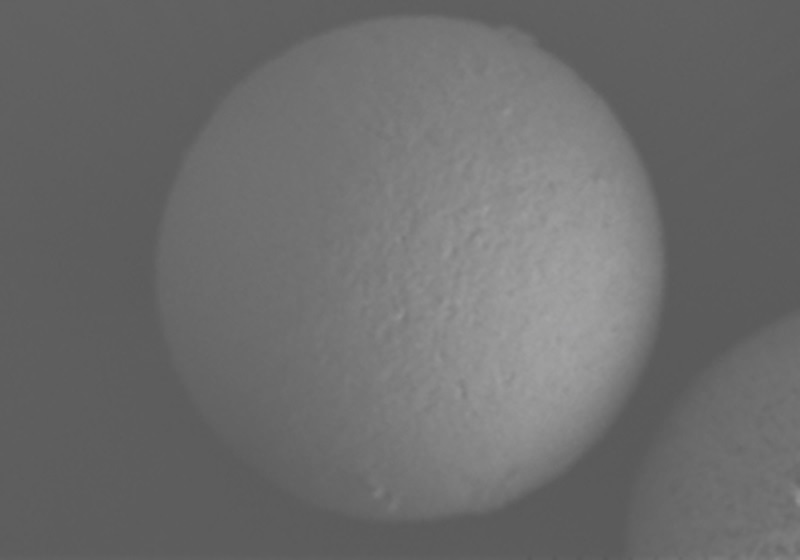
Sabic is downsizing its operations in Europe, particularly at the Chemelot Industrial Park in Geleen, the Netherlands
As part of a scheduled maintenance shutdown, one of the cracking units, Olefins 3, will be halted for three months. This move is part of Sabic’s strategy to optimize its operations, improve efficiency, and invest in sustainability at the Geleen site.
Olefins 3, which started in 1973 and has a production capacity of 550,000 tonnes per year of ethylene and 260,000 tonnes per year of propylene, will not be restarted after the maintenance works. Instead, it will be dismantled. Meanwhile, Olefins 4, with a nominal capacity of 675,000 tonnes per year of ethylene and 485,000 tonnes per year of propylene, will continue operating as usual. Nylon fibers
The company’s future plans for the Geleen site involve portfolio optimization and the ongoing construction of the Sabic and Plastic Energy chemical recycling plant, aligning with its sustainability goals.
Sabic’s financial performance in 2023 saw a significant decline, with sales dropping by 23% compared to the previous year, totaling 141.5 billion riyals (approximately $37.7 billion). Nylon fibers

Swedish Tyre Recycling, or SDAB, has inked a deal to supply tyre raw materials for the forthcoming tyre pyrolysis plant in Uddevalla, Sweden
This plant, being constructed by a joint venture between Antin Infrastructure Partners and Scandinavian Enviro Systems, will employ Enviro’s pioneering technology. This technology facilitates the production of sought-after recovered Carbon Black (rCB) and Pyrolysis Oil from sorted and processed End-of-Life Tyres (ELTs), thus establishing a fully circular supply chain. Under the strategic agreement, SDAB will deliver a substantial volume of ELTs collected annually in Sweden, with shipments starting in 2025.
Fredrik Ardefors, CEO of Swedish Tyre Recycling, expressed satisfaction in being chosen to supply this innovative plant, emphasizing their commitment to quality and reliable delivery. Nylon fibers
Stefano Madeddu, General Manager of the joint venture’s Swedish operations, highlighted their significant investment in building this flagship ELT recycling plant. He sees it as a model for future endeavors across Europe, aiming to set the highest standards for a fully circular economy in tyre recycling.
Fredrik Ardefors emphasized their ongoing quest for better tyre recycling solutions and hailed Enviro’s pyrolysis technology as a milestone. He sees the agreement as validation of their sorting and customization efforts. Nylon fibers

Kobe University engineers bacteria to manufacture green plastic
Experts at Kobe University in Japan have pioneered an innovative method to produce green plastic.
The team of bioengineers are leveraging bacteria to create a plastic modifier that yields renewably sourced, more processable, green plastic.
The novel sustainable plastic process has industrial-scale production potential, a development that could make the industry more environmentally friendly.
A paradigm shift in plastic production
Plastic, an indispensable component of modern civilisation, has long been associated with environmental degradation due to its persistence and reliance on non-renewable resources like crude oil. Nylon fibers
Seeking a sustainable plastic alternative, researchers have turned to polylactic acid (PLA) derived from plants. However, PLA’s inherent brittleness and poor degradability have hindered its widespread adoption.
To surmount these challenges, Kobe University’s bioengineers and Kaneka Corporation ventured have collaborated.
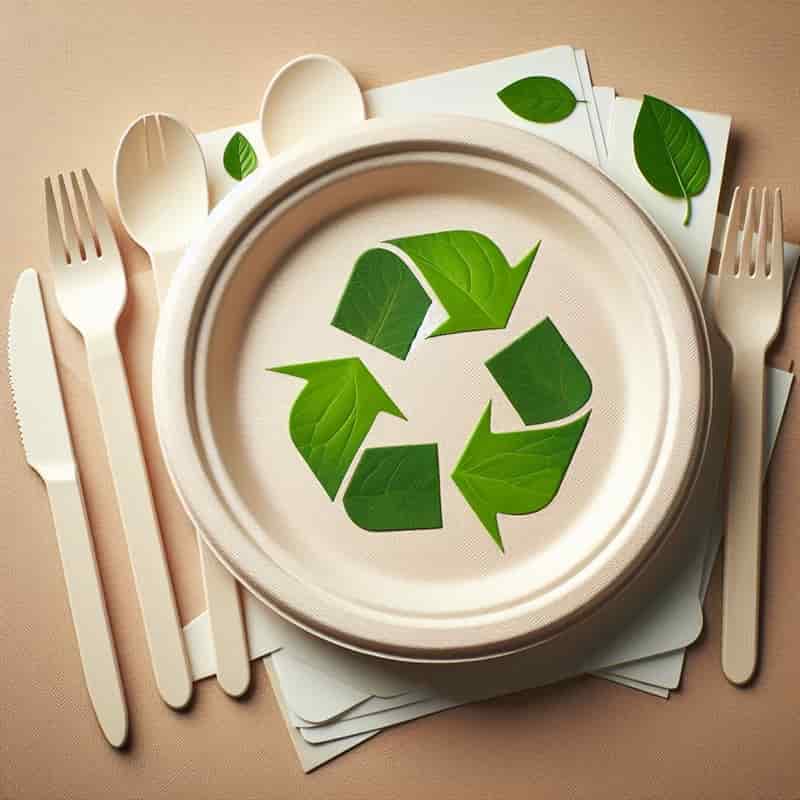
Nylon fibers
